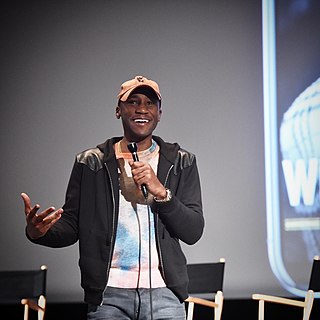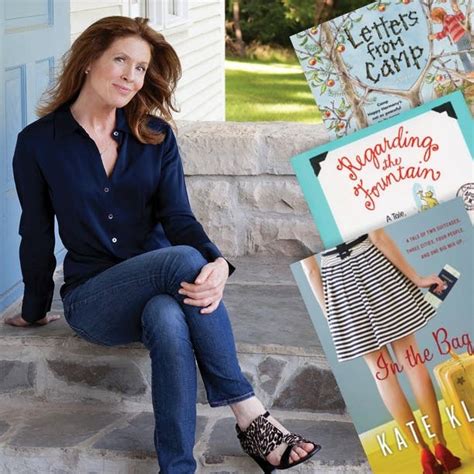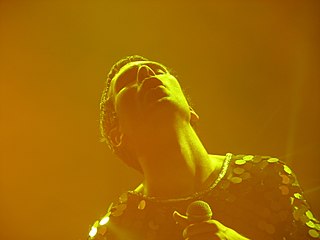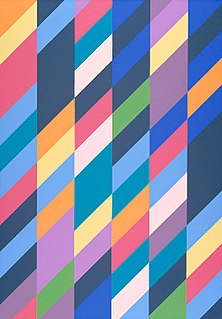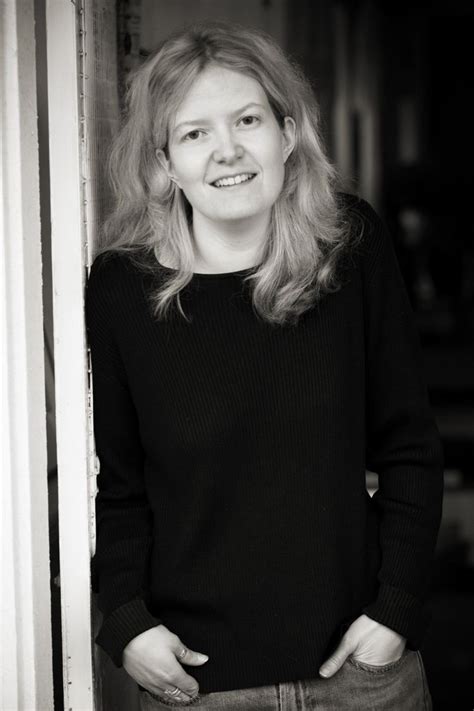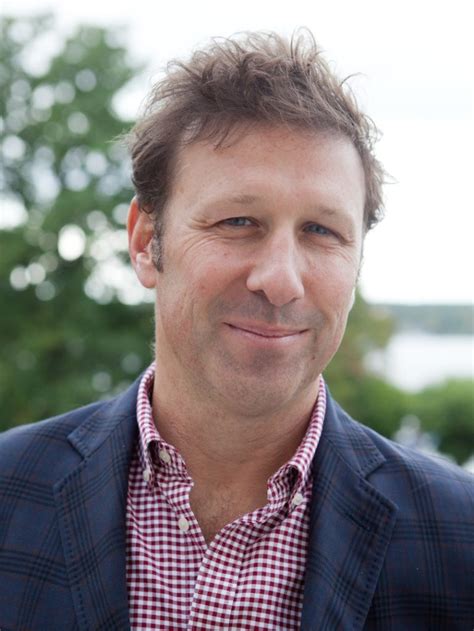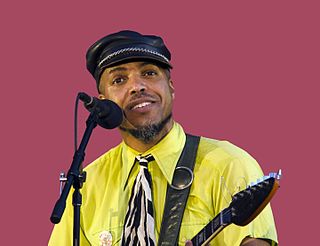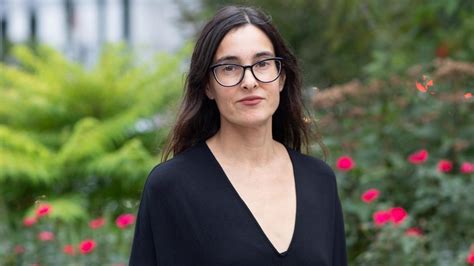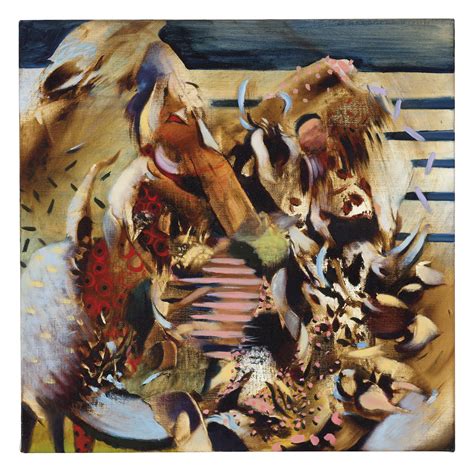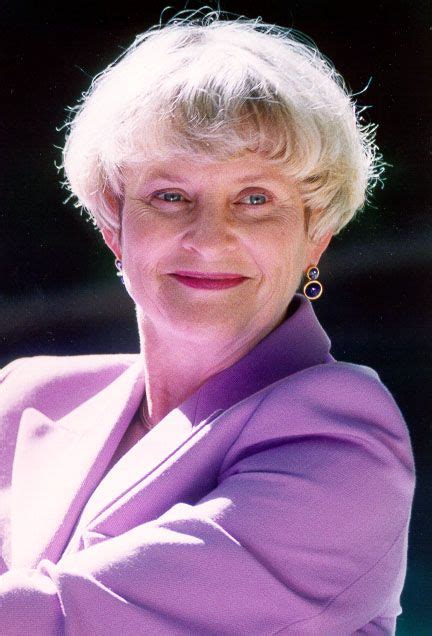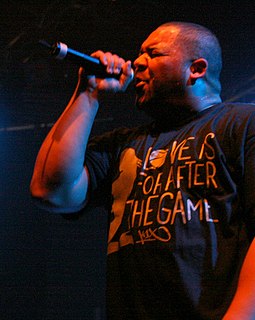Top 1200 Close Reading Quotes & Sayings - Page 18
Explore popular Close Reading quotes.
Last updated on November 16, 2024.
Now I see why reading was illegal for black people during slavery. I discover that I think in words. The more words I know, the more things I can think about. My vocab and thoughts grow together like the stem and petals of a flower. Reading was illegal because if you limit someone's vocab, you limit their thoughts. They can't even think of freedom because they don't have the language to.
A word, and all the infinite fluctuations it may possess. Like that moment when you know you have something to say, and you know you're speaking, even, but you still have no idea how you will say it. Or the moment when, as a reader, you're reading, and you are understanding what you are reading, but still have utterly no idea what will come next for you, what precisely the author wants to say. For me, that is the ultimate level of literary depth, of literary density.
P.S. Nothing personal, but I think this journal assignment is a waste of time. I know I have to do something to make up for all the work I'm missing at school, but I HATE busywork. And that's what this journal thing is. Half the teachers at school assign work they never read. When we get stupid assignments like that, I always write somewhere on my paper "blah blah blah" or "I bet you're not even reading this," are you? or "Give me a sign if you're reading this." They never are.
I seem to have three categories of readers. The first is nonbelievers who are glad that I am reading the Bible so they don't have to bother. The second group, which is quite large, is very Biblically literate Jews. And the third, which is also very large, is Christians, most of them evangelical. The evangelical readers and the Jewish readers have generally been very encouraging, because they appreciate someone taking the book they love so seriously, and actually reading it and grappling with it.
There are different gradations of personhood in different poems. Some of them seem far away from me and some up close, and the up-close ones generally don't say what I want them to say. And that's true of the persona in the poem who's lamenting this as a fact of a certain stage of life. But it's also true of me as me.
Every time I do a movie, I'm reading the script, or if it's something I have coming up, I'm reading the script, and I just spend hours and hours and days and weeks and months going over the script and just writing a lot of different ideas down, finding a little dialogue or just coming up with ideas for scenes and moments and all that kind of stuff.
I doubt if I shall ever have time to read the book again -- there are too many new ones coming out all the time which I want to read. Yet an old book has something for me which no new book can ever have -- for at every reading the memories and atmosphere of other readings come back and I am reading old years as well as an old book.
Just reading that - just reading that a person can be black and still perform in blackface, making fun of black people for a living, and at the same time be a genius and be an incredible entertainer and at the same time be extremely conflicted and feel like - just feel terrible for doing that, essentially, which is what Bert Williams felt, from what I gather, from what I read - all of that just made - was so incredible to me.
You have to sit with the songs until they start to live. Or do things straight-up spontaneously. I set up a beat just like I do in the live show, add the lyrics that I wrote in thirty minutes - I already had a topic in mind because I had this crazy experience with this girl who was trying to get close to me and it freaked me out because she was really close to another friend of mine, and I thought, "This is a story, I'm gonna make this into a song."
We like books that have a lot of dreck in them, matter which presents itself as not wholly relevant (or indeed, at all relevant) but which, carefully attended to, can supply a kind of "sense" of what is going on. This "sense" is not to be obtained by reading between the lines (for there is nothing there, in those white spaces) but by reading the lines themselves looking at them and so arriving at a feeling not of satisfaction exactly, that is too much to expect, but of having read them, of having "completed" them.
It was only after I had been out of the art school that I actually copied a small Seurat, and I copied it in order to follow his thought, because if you do copy an artist, and you have a close feeling for him, in fact that you need to know more about his work, there is no better way than actually to copy, because you get very close indeed to how somebody thinks.
A good book deserves an active reading. The activity of reading does not stop with the work of understanding what a book says. It must be completed by the work of criticism, the work of judging. The undemanding reader fails to satisfy this requirement, probably even more than he fails to analyze and interpret. He not only makes no effort to understand; he also dismisses a book simply by putting it aside and forgetting it. Worse than faintly praising it, he damns it by giving it no critical consideration whatever.
Reading a novel after reading semiotic theory was like jogging empty-handed after jogging with hand weights. What exquisite guilt she felt, wickedly enjoying narrative! Madeleine felt safe with a nineteenth century novel. There were going to be people in it. Something was going to happen to them in a place resembling the world. Then too there were lots of weddings in Wharton and Austen. There were all kinds of irresistible gloomy men.
If you spend enough time reading or writing, you find a voice, but you also find certain tastes. You find certain writers who when they write, it makes your own brain voice like a tuning fork, and you just resonate with them. And when that happens, reading those writers ... becomes a source of unbelievable joy. It’s like eating candy for the soul. And I sometimes have a hard time understanding how people who don’t have that in their lives make it through the day.
For me as a kid, reading cyberpunk was like seeing the world for the first time. Gibson's Neuromancer wasn't just stylistically stunning; it felt like the template for a future that we were actively building. I remember reading Sterling's Islands in the Net and suddenly understanding the disruptive potential of technology once it got out into the street. Cyberpunk felt urgent. It wasn't the future 15 minutes out - it was the future sideswiping you and leaving you in a full-body cast as it passed by.
To read as if your life depended on it would mean to let into your reading your beliefs, the swirl of your dreamlife, the physical sensations of your ordinary carnal life; and simultaneously, to allow what you're reading to pierce routines, safe and impermeable, in which ordinary carnal life is tracked, charted, channeled. Then, what of the right answers, the so-called multiple-choice examination sheet with the number 2 pencil to mark one choice and one choice only?
I don't think I possess any skill that anyone else doesn't have. I've just had perhaps more of an opportunity, more of an exposure, and been fortunate to survive a lot of situations that many other weren't so lucky to make it. It's not how close can you get to the ground, but how precise can you fly the airplane. If you feel so careless with you life that you want to be the world's lowest flying aviator you might do it for a while. But there are a great many former friends of mine who are no longer with us simply because they cut their margins to close.
No player in the NBA was born wanting to play basketball. The desire to play ball or to read must be planted. The last 25 years of research show that reading aloud to a child is the oldest, cheapest and must successful method of instilling that desire. Shooting baskets with a child creates a basketball player; reading to a child creates a reader.
If it was a biopic about Glenn Greenwald, I would have immersed myself more fully in his personal life and gotten to know him as much as I could, but because it was much more about his relationship to this particular situation, to The Guardian, to Laura Poitras, and to Ewen MacAskill, and Edward Snowden, I was able to really learn a lot about him from reading his book and reading his many articles and accounts of that time.
A writer writes a book. People read it. You don't know what they're reading, really. You read a review and think, "That is so inaccurate. You can't have been reading my book with any kind of attention, because that is all wrong, that's even the wrong name you're including there." But these reviewers have been diminished in importance, the work is so little respected. If you're reviewed by a real critic, by James Wood or Louis Menand, then you get something that is informed, interesting, and highly articulate. But the average review doesn't have that kind of depth anymore.
..."Are you okay?" he says, still looking at me, and I feel my smile slip, fade, and the silence that falls over us then is so total I can’t hear anything, not the rush-hiss of my heart pounding in my chest, not the sounds all around us; insects, wind, and the distant clatter of others’ lives in houses built close but not too close because when we look out our windows we all like to pretend that everything we see is ours. But Ryan is not mine.
I don't think there's anything that I would really baulk at doing on-screen. I don't think so. I've got certain pet peeves about writing... my pet peeve about reading scripts is when they give you a line reading and there'll be a line but next to your character's name it'll say 'very angry'. But I'm like: "Well, I'll decide that actually!" So, there's little things like that. That's a slight pet peeve.
Science has done absolutely nothing about noise. The worst design flaw in the human body is that you can't close your ears. The reason you can't close your ears is, if a lion was coming, you had to wake up. Today no lions are coming. Beeping trucks are coming. I read the other day that the guy who invented the beep when trucks go backward, he died. I thought: Of course - he dies, I have to listen to it.
I started to concentrate more upon how the viewer looks at photographs... I would insert my own text or my own specific reading of the image to give the viewer something they might not interpret or surmise, due to their educated way of looking at images, and reading them for their emotional, psychological, and/or sociological values. So I would start to interject these things that the photograph would not speak of and that I felt needed to be revealed, but that couldn't be revealed from just looking at an image.
I love fortune readings! because when I get in troubles, if the reading says that I am in a lucky day, I can think my troubles are just some kind of mistakes, and if the reading says that I am in the unlucky day, I can think that my troubles are just because of my bad luck. Either ways, I can know the reason of my troubles.
I'll never forget reading Chekhov's "A Doctor's Visit" on a train to Hawthorne, New York, and I got to the end - the scene where the patient says goodbye to the doctor and she puts a flower in her hair as a kind of thank you to him - and I felt like a cowboy shot from a canyon's top. This is a different experience from reading a novel, I think. The emotional effect is cumulative. Let's just hope market forces don't send short fiction the way of the dinosaur, because their sales are paltry compared to the novel and this is truly unfortunate.
We should think about what we mean by literacy. If you say, "He's a very literate person," what you really mean is that he knows a lot, thinks a lot, has a certain frame of mind that comes through reading and knowing about various subjects.The major route open to literacy has been through reading and writing text. But we're seeing new media offer richer ways to explore knowledge and communicate, through sound and pictures.
I believe you have to write every day–make the time. It’s about having an organized mind instead of a chaotic and untidy one. There is a myth that writers are bohemian and do what they like in their own way. Real writers are the most organized people on the planet. You have to be. You’re doing the work and running your own business as well. It’s an incredibly organized state. [Also reading]…one of the things reading does do is discipline your mind. There are no writers who are not readers.
But in reading Shakespeare and in reading about Edward de Vere, it's quite apparent that when you read these works that whoever penned this body of work was firstly well-travelled, secondly a multi-linguist and thirdly someone who had an innate knowledge of the inner workings and the mechanisms of a very secret and paranoid Elizabethan court. Edward de Vere ticks those three boxes and many more. William of Stratford gave his wife a bed when he died [his second best bed].
As the days piled up into weeks, and the weeks turned into months, and fall slid into winter, I realized one of the great truths about tragedy: You can dream of disappearing. You can wish for oblivion, for endless sleep or the escape of fiction, of walking into a river with your pockets full of stones, of letting the dark water close over your head. But if you've got kids, the web of the world holds you close and wraps you tight and keeps you from falling no matter how badly you think you want to fall.
Jeff Chu's pilgrimage across America to discover his own place as a gay man in the Christian church as well as attitudes about being gay and Christian across denominations is at once timely, smart, poignant, disturbing, inspiring, and maddening. It's essential reading for anyone who cares about the rights of the LGBTQ community to be treated as equal citizens at every level, including the religious-which means it should be essential reading for everybody.
My mother is somebody who I think of as having just an intense close focus. She's somebody who really can pay very, very close attention to the thing she's focusing on for a very long period of time, and that has served her incredibly well in her professional career. She knows - the things she knows, she knows them just so deeply.
I have made it a practice for several years to read the Bible through in the course of every year. I usually devote to this reading the first hour after I rise every morning. As, including the Apocrypha, it contains about fourteen hundred chapters, and as I meet with occasional interruptions, when this reading is for single days, and sometimes for weeks, or even months, suspended, my rule is to read five chapters every morning, which leaves an allowance of about one-forth of the time for such interruptions.
The Library didn't only contain magical books, the ones which are chained to their shelves and are very dangerous. It also contained perfectly ordinary books, printed on commonplace paper in mundane ink. It would be a mistake to think that they weren't also dangerous, just because reading them didn't make fireworks go off in the sky. Reading them sometimes did the more dangeous trick of making fireworks go off in the privacy of the reader's brain.
At some point, you have to disconnect, if the obsession with playing a real person gets in the way of the movie at large. At the same time, we're all interested, as actors in trying to get as close to the real thing as we can, and whatever you can do in order to create that transformation feels fun and, for me, the furthest I can get away from myself is fun. It's all part of the costume, the accent, and all that stuff. It's about trying to get close without it being a detriment to the point of view of the story that you're trying to tell.
I like people, I really do. I like meeting people. But most of the time I would rather be at home reading a book than reading in a bookstore. It's a performance, and it ends up being all right, and then you have a nice shot of bourbon afterwards, and it's all good. I want to please people. I want to be nice. I want to be liked. As a result I say yes to everything. But it takes a lot of vital energy out of me.
Think about the way you go surfing on the Internet - you go from one thing to another. You can't really concentrate. I can't sit and read 10 pages on my computer. You'll read and then all of a sudden part of your brain is like, "What about that? ...You're not reading the whole book. You're reading fragments. Even though I think it's bad, I think it's interesting too, because that's the way my brain works.
Words are alive--when I've found a story that I love, I read it again and again, like playing a favorite song over and over. Reading isn't passive--I enter the story with the characters, breathe their air, feel their frustrations, scream at them to stop when they're about to do something stupid, cry with them, laugh with them. Reading for me, is spending time with a friend. A book is a friend. You can never have too many.
I could still smell her on my fur. It clung to me, a memory of another world. I was drunk with it, with the scent of her. I'd got too close. The smell of summer on her skin, the half-recalled cadence of her voice, the sensation of her fingers on my fur. Every bit of me sang with the memory of her closeness. Too close. I couldn't stay away.
I wish I had time to do more reading, but I just haven't had much time. But I still find time for writing. I've always preferred writing over reading, even though those things do go hand in hand. But when I do have time, even if it's not writing music, just writing in general - ideas and stories and things like that.
There is only one way to read, which is to browse in libraries and bookshops, picking up books that attract you, reading only those, dropping them when they bore you, skipping the parts that drag-and never, never reading anything because you feel you ought, or because it is part of a trend or a movement. Remember that the book which bores you when you are twenty or thirty will open doors for you when you are forty or fifty-and vise versa. Don’t read a book out of its right time for you.
Jace perched on the windowsill and looked down at him. "You really don't get this bodyguard thing, do you?" "I didn't even think you liked me all that much," said Simon. "Is this one of those keep-your-friends-close-and-your-enemies-closer things?" "I thought it was keep your friends close so you have someone to drive the car when you sneak over to your enemy's house a night and throw up in his mailbox." "I'm pretty sure that's not it
I could have grabbed his shirt collar. I could have pulled him close to me, so close he could feel my breath on his skin, and I could have said to him, "This is just a crisis. A flash! A single match struck against the implacable darkness of time! You are the one who taught me to never give up. You taught me that new possibilities emerge for those who are prepared, for those who are ready. You have to believe!
He put the book down. “As you wish.” He rose and walked past me. I lowered my sword, expecting him to pass, but suddenly he stepped in dangerously close. “Welcome home. I’m glad you made it. There is coffee in the kitchen for you.” My mouth gaped open. He inhaled my scent, bent close, about to kiss me… I just stood there like an idiot. Curran smirked and whispered in my ear instead. “Psych.” And just like that, he was out the door and gone. Oh boy.
Well into the 19th century there were pronouncements from just about every branch of science and medicine that reading, writing, and thinking were dangerous for women. Articles in the Lancet declared that women's brains would burst and their uteruses atrophy if they engaged in any form of rigorous thinking. The famous physician J.D. Kellogg insisted that novel reading was the greatest cause of uterine disease among young women and urged parents to protect their daughters from the dreaded consequences of print.
It might be helping to explore a story visually by going to see a museum exhibit that's relevant to something that somebody's reading, or going to see a show or listening to a piece of music or cooking a meal that's in one of the stories, something practical, something kinesthetic that draws the reader in and helps them to experience the story for themselves. Those are all ways I think we can kind of come in the back door and help kids find the joy, as opposed to the chore or responsibility, of reading.
Mom had just gotten back from Sydney, and she had brought me an immense, surpassingly blue butterfly, Papilio ulysses, mounted in a frame filled with cotton. I would hold it close to my face, so close I couldn't see anything but that blue. It would fill me with a feeling, a feeling I later tried to duplicate with alcohol and finally found again with Clare, a feeling of unity, oblivion, mindlessness in the best sense of the word.
It can't be supposed," said Joe. "Tho' I'm oncommon fond of reading, too." Are you, Joe?" Oncommon. Give me," said Joe, "a good book, or a good newspaper, and sit me down afore a good fire, and I ask no better. Lord!" he continued, after rubbing his knees a little, "when you do come to a J and a O, and says you, 'Here, at last, is a J-O, Joe,' how interesting reading is!
I want to say, and this is very important: at the end we lucked out. It was luck that prevented nuclear war. We came that close to nuclear war at the end. Rational individuals: Kennedy was rational; Khrushchev was rational; Castro was rational. Rational individuals came that close to total destruction of their societies. And that danger exists today.
I've always been able to write rhymes and that would be like when you consult with your girl. When I'm mad and s - t like that I would throw headphones on and close my room door, when I'm mad I just close the door with my girl and f - k her. In so many different ways hip-hop has been like my girl and it's always been there to hold me down.
When we want a book exactly like the one we just finished reading, what we really want is to recreate that pleasurable experience--the headlong rush to the last page, the falling into a character's life, the deeper understanding we've gotten of a place or a time, or the feeling of reading words that are put together in a way that causes us to look at the world differently. We need to start thinking about what it is about a book that draws us in, rather than what the book is about.
If we are always reading aloud something that is more difficult than children can read themselves then when they come to that book later, or books like that, they will be able to read them - which is why even a fifth grade teacher, even a tenth grade teacher, should still be reading to children aloud. There is always something that is too intractable for kids to read on their own.
